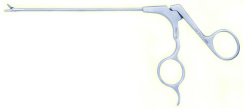They tried to slice my throat open, but I stopped them with my words.
/This incident took place about four years ago. I referenced it briefly on Twitter a couple weeks ago and was asked by a couple followers to relate the story in full. Here it is.
I was having lunch with my wife and a college friend. I was eating clam chowder when on object became lodged in my throat. It was not blocking the airway completely, but it was most assuredly stuck. Based upon what I was eating, we assumed that it was a fish bone or a bit of a shell.
I began coughing. Hacking. Wheezing. I drank glass after glass of water in an effort to dislodge it.
Eventually the management arrived at the table and offered assistance. They led me through the dining room, through the kitchen and to a landing at the back of the restaurant. While I initially thought they were being helpful, I later realized that they were just trying to get me as far away from the other customers as possible.
A bartender attempted to administer the Heimlich maneuver. Ironically, my wife and I had just been recertified in CPR the day before, so I knew his attempt at the procedure was bad. He wrapped his arms around my chest and began squeezing, lifting me off my feet as he did. I begged for him to stop.
An ambulance arrived. The paramedics strapped me to a stretcher and whispered to one another that I had “decreased breath sounds on the left side.”
I asked them to either share this information with me or do a better job of whispering.
I was brought to the University of Connecticut medical center. Doctors attempted to use forceps to dislodge the object. Four doctors held me down in order to counter my gag reflex while another jammed the metal forceps down my throat.
When this failed, they inserted smaller arthroscopic forceps, complete with a camera, through my nose and down into the throat in order to remove the object.
It was soon determined that the object was too large to bring back up through my nose. So it was back to the original forceps.
Numbing agents were applied. More attempts to reach down my throat were made. Eventually it was determined that I would require surgery. Fearful that the object might end up in my lung if not removed soon, the doctors would make an incision in my throat and remove the object.
“Depending on where it’s lodged, we might have to crack the chest” one doctor said.
This sounded insane to me. I was going to have my throat cut open for a fish bone?
As they rolled me towards the operating room, I began to panic. I couldn’t believe this was happening.
“Stop,” I said. “Have we tried everything? Take a second and think. Is there anything else we could possibly do before you cut me open?”
The doctors were quiet for a moment, and then one said, “Well, we’ve never tried to slide the arthroscopic forceps down someone’s throat.”
Instant excitement swept the team. If it worked, this would be a new procedure. A new found use for a medical instrument. Other doctors were called to observe. A video camera was brought in to record the procedure. About a dozen doctors in all jammed themselves into a small examination room where the procedure would be attempted.
Once again, a handful of doctors held me down as the snake-like device was slid down my throat. A minute later it was retracted. Trapped in the forceps was a dried bay leaf.
Not a bone or a shell.
Just a leaf, which should have been removed prior to serving me the chowder but was not.
I spent about six hours at the medical center that day, and though I probably could have sued the restaurant, I did not.
In retrospect, I wish I had.
Nevertheless, I learned something very valuable that day:
There is nothing wrong with questioning your doctor. Had I not stopped that gurney from rolling into the operating room, I would’ve ended up with an incision in my throat or even worse. It was panic that caused me to stop the doctors that day, but in the future, it will be the knowledge that I can play an active and potentially helpful role in my medical care.


